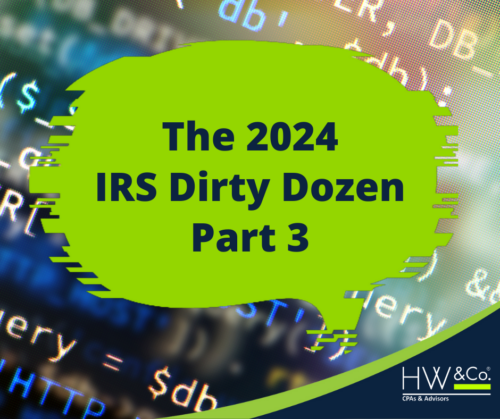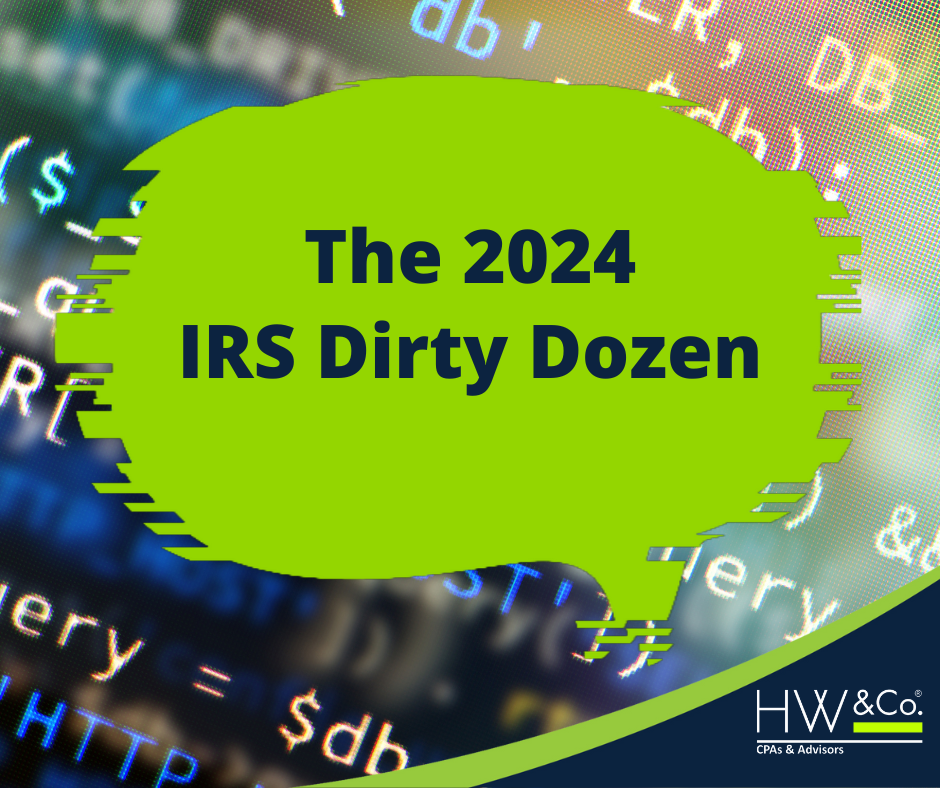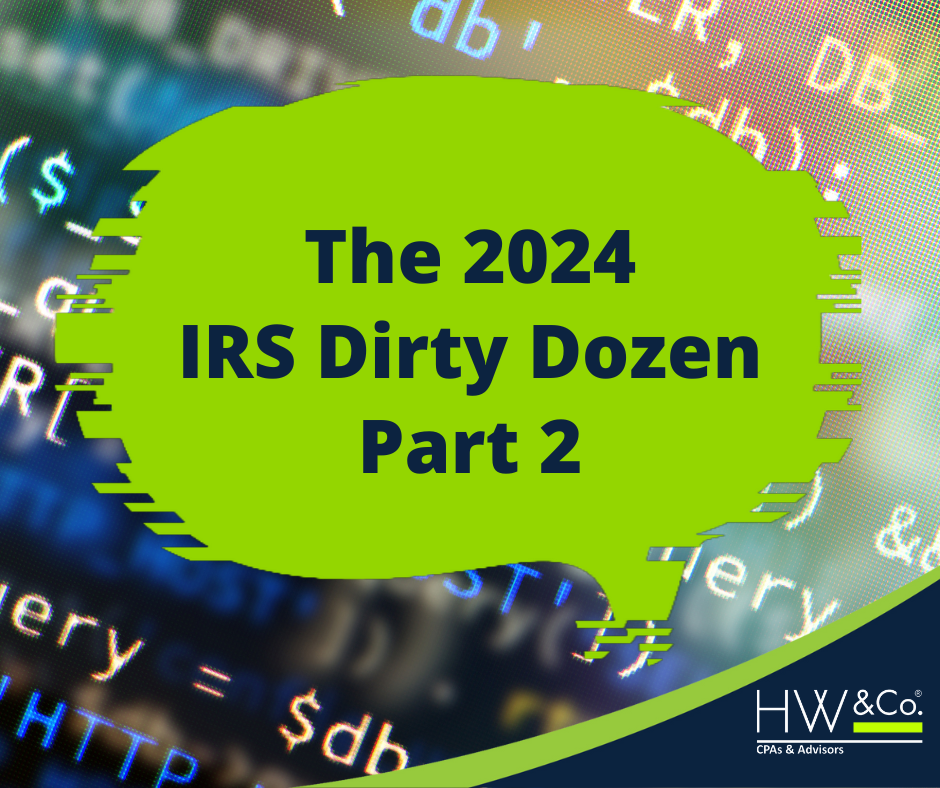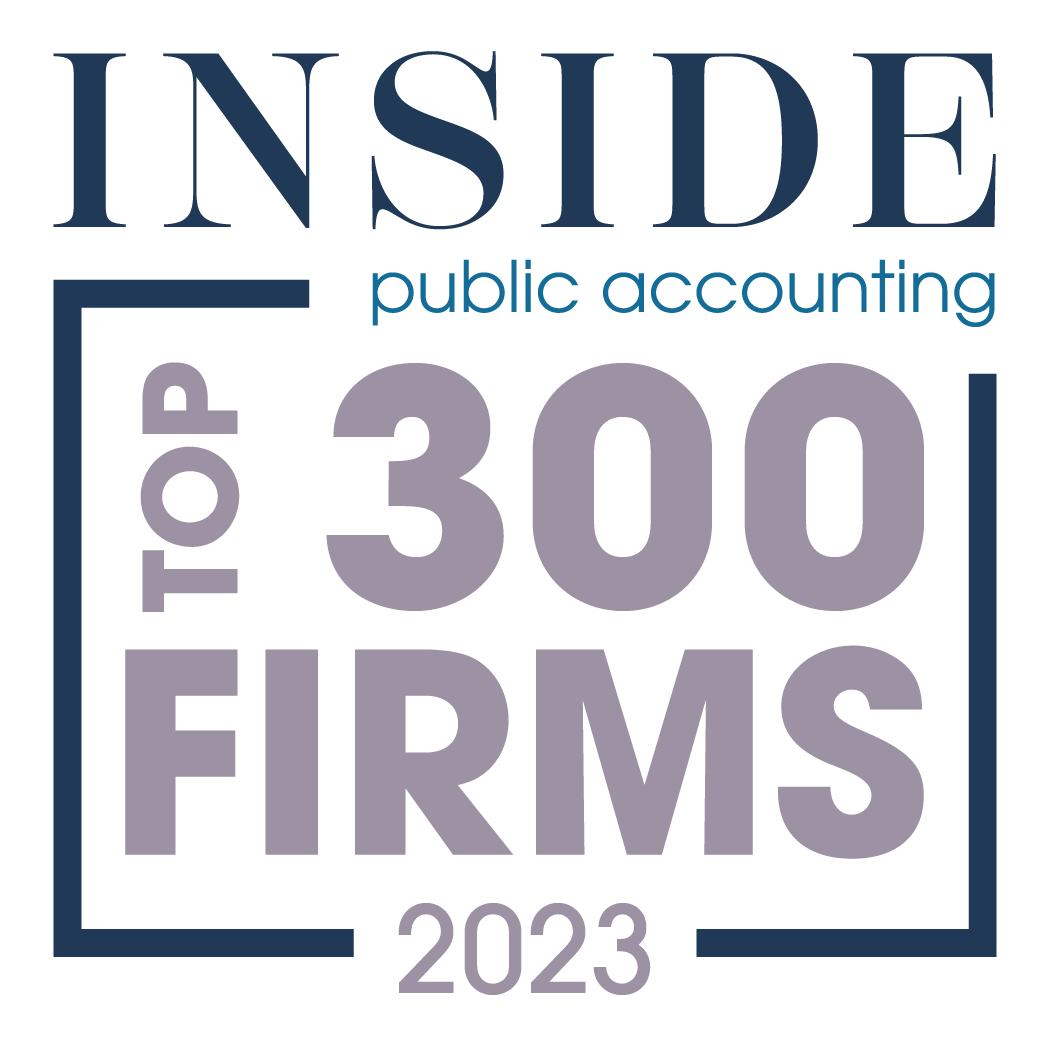 Today, we continue bringing you the scams highlighted by IRS’s 2024 Dirty Dozen campaign, an annual list compiled by the IRS listing the most common tax schemes and providing taxpayers with important information about how to protect themselves.
Today, we continue bringing you the scams highlighted by IRS’s 2024 Dirty Dozen campaign, an annual list compiled by the IRS listing the most common tax schemes and providing taxpayers with important information about how to protect themselves.
Here are three more items from the Dirty Dozen that taxpayers should be ready to identify as fraudulent schemes: fake charities, deceitful tax professionals, and bad advice on social media.
6. Fake Charities Exploiting Taxpayers
Scammers are increasingly setting up fake charities to take advantage of generous taxpayers, especially following disasters. The IRS cautions taxpayers to do their homework when donating to charities, and to validate that their funds are going to a legitimate organization. Phone scams requesting monetary donations for charitable causes are common. Taxpayers should also watch out for emails and texts requesting money for aid. These methods are often used by fraudsters to steal both money and sensitive personal information. By giving to recognized, well-known charities, taxpayers can avoid getting pulled into scams.
Keep in mind, giving to a charity can allow you to claim a deduction on your tax return, but your donation must go to a tax-exempt organization recognized by the IRS in order to qualify. This is a great checkpoint for ensuring that your gift is going to a credible organization.
7. Deceitful Tax Professionals
Most tax preparers are trustworthy professionals who want to provide a valuable service and build a long-term relationship with their clients. Unfortunately, because of the nature of the profession, some scammers may try to profit off taxpayers who haven’t done their due diligence when selecting their tax preparers.
Dishonest tax preparers profit from their victims in a variety of ways, but there are usually warning signs. Some key indicators that a preparer might not have the best intentions include:
- Asking for cash only payments and not providing receipts for those payments
- Falsifying income records to increase tax credits
- Falsely claiming deductions to increase refunds
- Sending refunds directly to the preparer’s bank account rather than to the taxpayer’s bank account
Red flags also include preparers who charge their fees based on the size of refunds, as well as those who won’t sign tax returns or request that taxpayers sign blank returns. The IRS has a Directory of Federal Tax Return Preparers with Credentials and Select Qualifications, which taxpayers can use to find a qualified tax professional or verify their credentials.
8. Advice on Social Media
The IRS is reminding taxpayers that social media should not be trusted when it comes to tax advice. Social media is ubiquitous in our society, and many of us know not to rely on it for accurate information, even if the source appears authoritative. However, scammers can be crafty and convincing, especially when enticing taxpayers with the promise of enhanced refunds.
A common ploy involves completing and filing tax forms—such as Form W-2 or Form 8944— with inaccurate information in the hopes of receiving, or bolstering, a refund. Form 8944, in particular, should not be used by the average taxpayer. And taxpayers should never consider falsifying information on their W-2s.
“Social media is an easy way for scammers and others to try encouraging people to pursue some really bad ideas, and that includes ways to magically increase your tax refund,” said IRS Commissioner Danny Werfel. “There are many ways to get good tax information, including @irsnews on social media and from trusted tax professionals. But people should be careful with who they’re following on social media for tax advice. Unlike hacks to fix a leaky kitchen sink or creative makeup tips, people shouldn’t rely on made-up ways on social media to patch up their tax return and boost their refund.”
The promise of easy money may entice otherwise honest taxpayers, but be warned that taxpayers who intentionally file forms containing false information may face civil and criminal penalties. The IRS is monitoring these forms closely to catch these fraudulent schemes.
The IRS urges people to report abusive tax schemes and abusive tax return preparers.
Read more about the IRS’s Dirty Dozen campaign:
IRS Dirty Dozen Part 1 – 2024 Campaign Kicks Off With Warning About Phishing, Smishing, and ERC Scams
IRS Dirty Dozen Part 2 – Fake Online Account Assistance, False Fuel Tax Credit Claims, and Offer in Compromise Mills
IRS Dirty Dozen Part 4 – Spearphishing and Schemes Aimed at High-Income Tax Filers
Stay tuned as we continue to profile the remaining entries to keep you apprised of how to avoid evolving tax schemes.
For more information, please visit the IRS website or contact an HW&Co. Advisor today.
©2024






